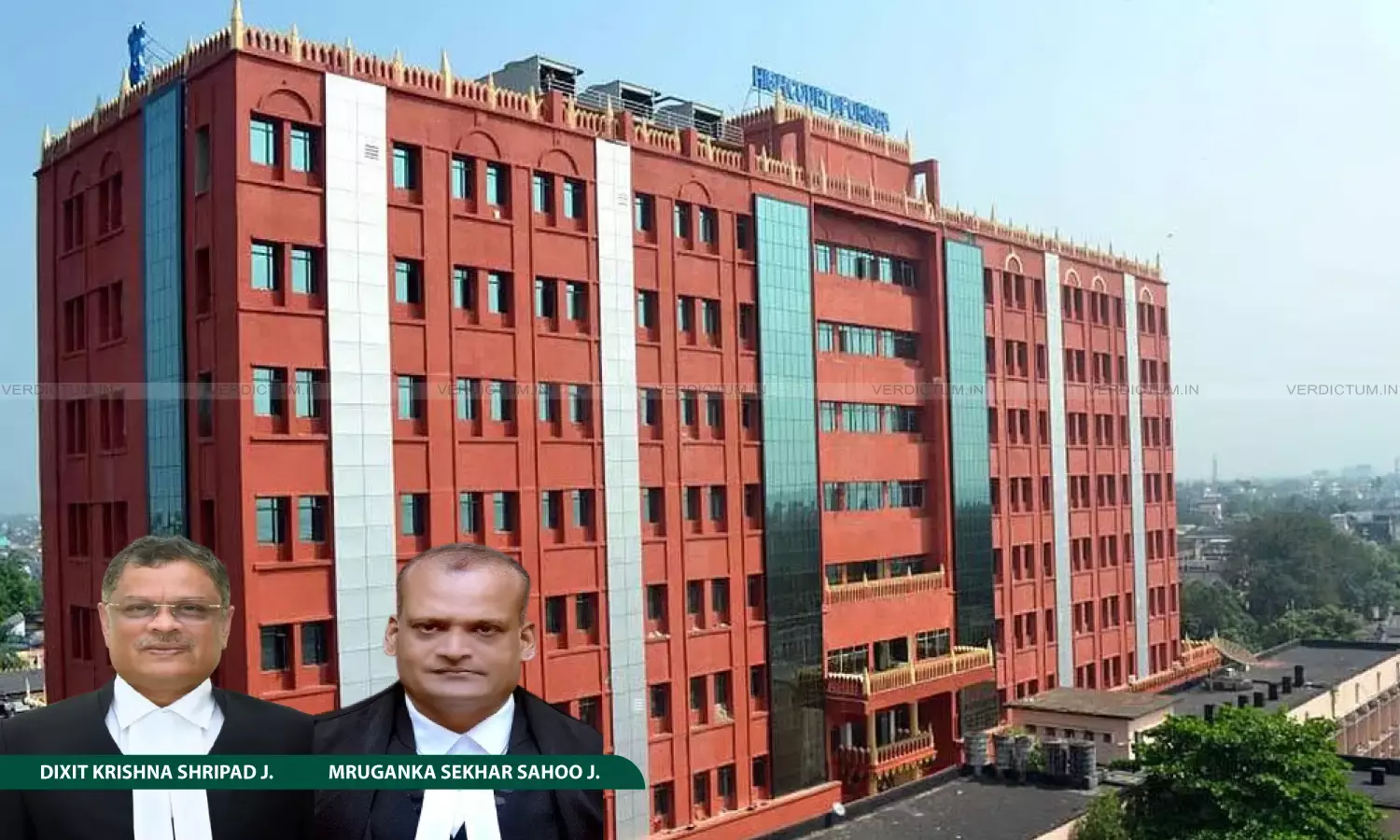Compulsory Retirement Is No Substitute For Holding Disciplinary Inquiry: Orissa High Court Quashes Premature Retirement Order Of Judicial Officer
A Judicial Officer had approached the Orissa High Court challenging a Government Notification whereby he had been prematurely retired from service at the age of 55 years.

Justice Dixit Krishna Shripad, Justice Mruganka Sekhar Sahoo, Orissa High Court
While setting aside the order of premature retirement of a Judicial Officer, the Orissa High Court has reiterated that a compulsory retirement is no substitute for holding a disciplinary inquiry and such decisions cannot be taken as a punitive measure.
The Petitioner, a Judicial Officer (then a Family Court Judge), challenged a Government Notification whereby he had been prematurely retired from service at the age of 55 years, normal age of superannuation being 60.
The Division Bench of Justice Dixit Krishna Shripad and Justice Mruganka Sekhar Sahoo said, “A compulsory retirement is no substitute for holding a disciplinary inquiry and that such decisions cannot be taken as a punitive measure vide Umedbhai supra. Be that as it may, once an action is punitive then the question arises as to whether such an order could have been passed without giving an opportunity of hearing to the official. The answer has to be in the negative. Records do not reveal any reasons as to why no disciplinary inquiry was initiated nor was any opportunity afforded. We hasten to add that the requirement of hearing arises only because of imperative principles of natural justice, and not on account of requirement of a 3-month notice prescribed in Rule 38. It hardly needs to be stated that payment of three months emoluments dispenses with such a notice. Admittedly, they are paid in this case.”
Advocate Purusottam Chuli represented the Petitioner while Additional Standing Counsel Prabhu Prasanna Behera represented the Opposite Parties.
Factual Background
The Petitioner joined the District Judiciary in 1997 as Additional Civil Judge (Jr. Dn.)-cum-Judicial Magistrate Second Class and was granted ACP-II Scale of Pay in 2009. He was promoted to the cadre of Civil Judge (Sr. Dn.) and granted ACP-II Pay Scale with retrospective effect. He was granted the next promotion to the post of Chief Judicial Magistrate in 2013 and later to that of District Judge in 2015. In 2017, his performance, having been reviewed at the age of 50 years, he was allowed to continue. He got Selection Grade but came to be prematurely retired at the age of 55 years whilst presiding over the Family Court vide the impugned notification.
Reasoning
The Bench noted that the 2007 Rules have been promulgated by the Governor of Odisha in exercise of power conferred by the Proviso to Article 309 read with Articles 233, 234 & 235 of the Constitution of India. Rule 42 prescribes 60 years as the age of superannuation. In ordinary circumstances, every Judicial Officer should retire on attaining the age of superannuation, which Rule 42 fixes to be 60 years.
“Though right to public employment is not guaranteed, once a citizen is duly employed, he cannot be whimsically removed. Therefore, the power to prematurely retire is in the nature of an exception and the sine qua non for exercising such power has to be strictly complied with. Appreciably, there is no much divergence of opinions at the Bar in this regard”, it said. The Bench further added, “A Writ Court exercising original jurisdiction in a service dispute would be committing a grave error if it declines indulgence only on the ground that the impugned action is founded on the administrative opinion of Full Court. It all depends upon errors demonstrable from the records. Much is not necessary to discuss and less is insufficient to leave it unsaid.”
Coming to the facts of the case, the Bench noted that the allegations were received regarding manipulation of depositions, of asking the advocates to arrange for women & money. Despite such wild allegations, no disciplinary proceedings were drawn up. Reference was also drawn to the judgment of the Apex Court in State of Gujurat v. Umedbhai M Patel (2005) wherein it has been observed that an order of compulsory retirement cannot be passed as a short cut to avoid departmental inquiry, when such a course is eminently desirable. It was noticed that there were no adverse entries in the CCRs/PARs of the petitioner.
The Bench held, “Integrity of a judicial officer is not punctus punctilio of the market place. It has to be unimpeachable. In cases like this, one cannot straightway seek reinstatement in service or grant of monetary benefits in lieu thereof, per se because the impugned order is being set at naught. Therefore, in the fitness of things, matter merits a fresh look at and from the stage of Jurisdictional Committee of Review, of course after giving an opportunity of representation to the petitioner.”
Thus, allowing the petition in part, the Bench issued a Writ of Certiorari quashing the impugned order of premature retirement of the petitioner. “Matter is remitted back for consideration afresh keeping open all contentions, in the light of observations herein above made”, it concluded.
Cause Title: Sanjaya Kumar Sahoo v. State of Odisha and others (Case No.: W.P.(C) NO.11654 OF 2022)
Appearance:
Petitioner: Advocates Dr. Purusottam Chuli, P. Nath, A. Routray, Dr. S. Patnaik and S. Patnaik
Opposite Parties: Additional Standing Counsel Prabhu Prasanna Behera

